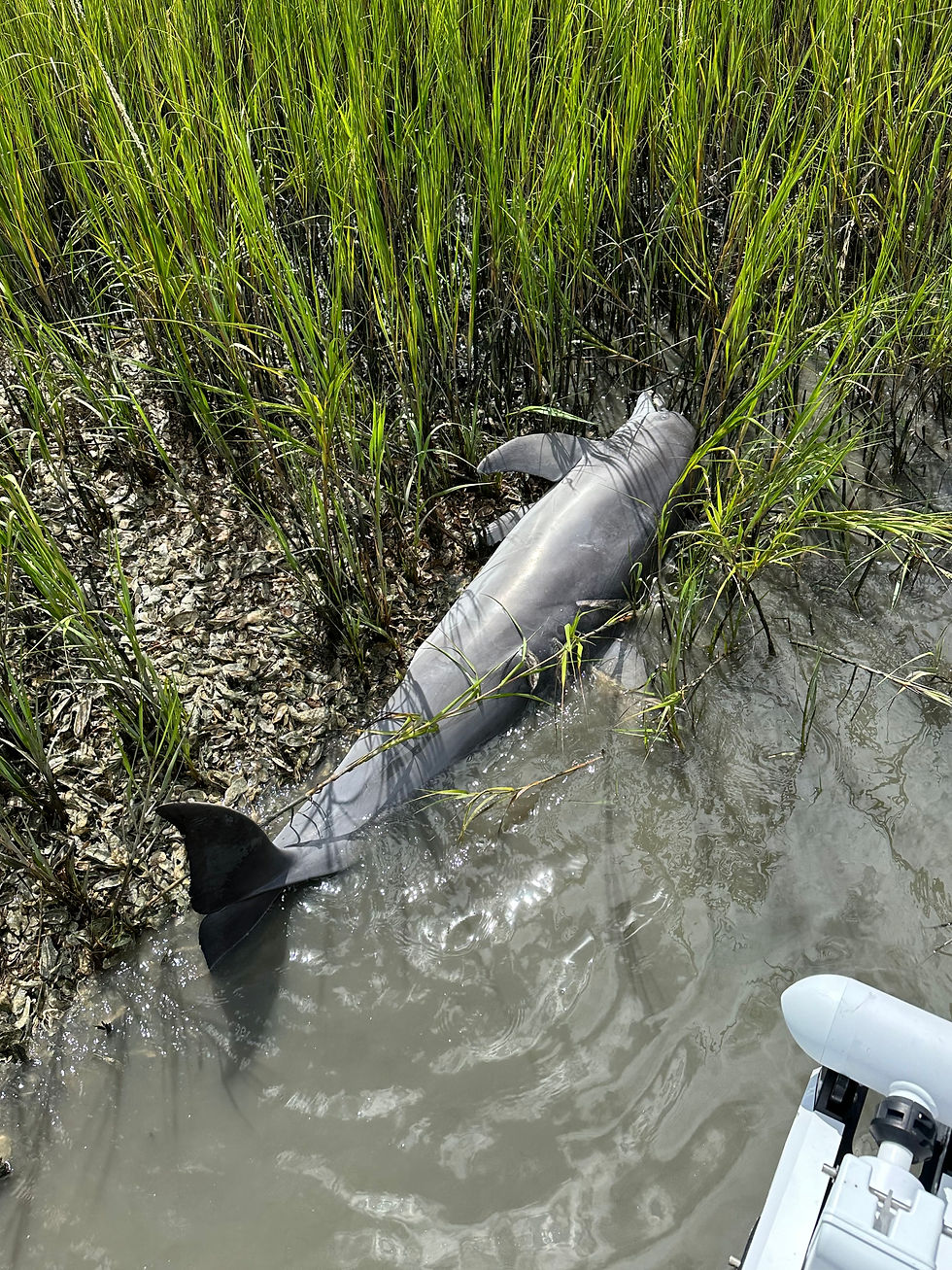September 2nd- Dolphin with Boat Strike in Folly River.
- Tracy Kowalczyk

- Nov 1, 2024
- 2 min read
Over the Memorial day weekend the LMMN team received a phone call of a dead dolphin in the Folly River. When the team arrived to the scene they saw that the animal had a boat strike on the top of its body and dorsal fin. The animal was taken back to the lab where a necropsy was performed by Lauren Rust and Tracy Kowalczyk.

During the necropsy, the team was able to see that the skin, where the boat strike occurred, seemed to have been trying to heal itself after the initial impact. Based on this and the placement of the prop cuts we felt fairly confident that the boat strike was the cause of death (and did not occur after the animal died). But with any good necropsy you need to check all aspects of the body to make sure your findings were the main and only cause of death. We collected many samples and sent them off to be tested to help confirm our findings.
The results came back confirming that the animal did indeed die due to a boat strike. This was not the only dolphin that week that was reported as being struck by a boat, but luckily this was the only fatality.

The increase of boaters that use inland and coastal waterways results in an increase of boating-related conflicts, accidents, and fatalities. In this case, our dolphin unfortunately was directly affected. This is why it is important to make sure you are using safe practices while boating for not only your own safety and the ones you love, but also to help protect our marine mammal friends. Simple ways that you can help prevent boat strikes to dolphins and all marine mammals would be:
When approaching marine mammals, reduce your speed and put your engine in neutral.
Keep a safe distance from them and avoid approaching them head-on.
Avoid approaching whales, dolphins, and porpoises when calves are present as small calves will need to take breaths more often, due to being so little, which means they will be at the surface of the water more often.
Designate a spotter on board to look out for marine life while on the boat as sometimes the driver can miss seeing animals in the area.
These boating practices will help protect our marine mammal friends and will hopefully avoid future accidents like this one.
If you encounter an injured marine mammal in South Carolina in the future please call our rescue hotline at 800-922-5431.
A special thank you to Bonnie Ertel and Madison Ragland for helping us with our necropsy.
*All photos were taken under the NOAA stranding agreement.




Comments